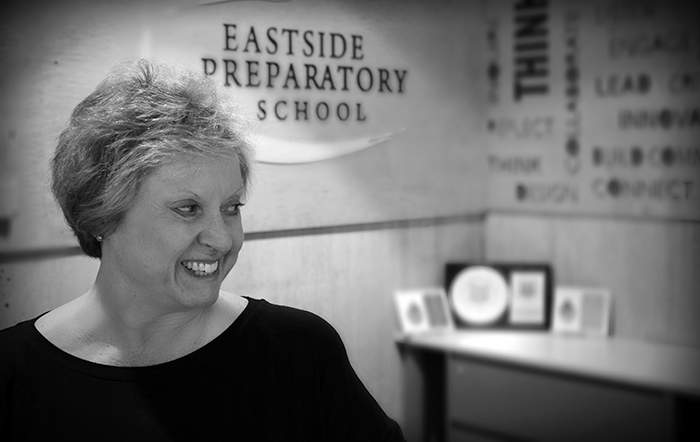
INSIGHT: The Complexities of Educating in Today’s Political Climate
By Dr. Terry Macaluso (Head of School)
The political landscape in our country right now is complex, confusing, and uncertain. No matter at which of myriad aisles one stands, we can all agree that the span between aisles is wider than it’s ever been before. As we prepare ourselves as a teaching community for the upcoming election, for support of the racial equity movement, for what will surely be a challenging economic climate, and toward a learning environment in which our students’ social, emotional and physical well-being is preserved, we continue working to ensure that all voices in our community are welcomed and heard. As a faculty, we expect to discuss the social reality in which we are living. There will be conversation about political conflict, about social justice, about economic stratification, about the lack of equity on so many levels and in so many domains. There will be disagreement. Discussion may become heated. Our aim is to make our classrooms safe for the most difficult conversations. We want to facilitate a civil exchange of ideas—because that’s what democracy requires, and because our responsibility is to support the development of citizens—who will be able to hang on to that democracy. We won’t always get this right—there will be moments when our own passions and ideas will emerge in discussions. We’re people, first, professional educators, second. When there is misunderstanding, we will call upon the grace that we have extended in our community since we were founded. We will make an assumption of good intent, a capacity that has been earned through years of trust and open communication.
We must also, during this moment in the evolution of humanity, understand the difference between a political issue and issues that have become politicized. As teachers, we’re aware that our responsibility is to make a space for voices to be heard. When adults whom students respect refrain from taking a ‘side,’ students will feel more comfortable voicing their own opinions. This, to me, is firmly in the realm of politics. And here is where the distinction between something that is political and something that has become politicized is critical. Equity is not a political concept. The statement that Black lives matter is about human rights—not a political posture. Equity is a human rights issue that has become politicized. Eastside Prep’s equity and inclusivity statement makes clear that we welcome people from every corner of the world, from every race, from every gender. The things that distinguish us make us more interesting. As a school community, we believe that Black lives do matter. We believe that the lives of all those who have borne the brunt of systemic racism in our culture and in the world are important and valued members of our community. Their voices matter; they deserve to be heard.
One of the things that we take pride in at EPS, is the acknowledgement that we, all of us at EPS, partner with families to raise children. At no other time in my personal history do I recall that this partnership was more important. It will take the generous and thoughtful work of all of us—parents and educators—to walk our students through this window in history at which there is a chance that the greatest shift in human thinking and behavior may be about to take place. Imagine what we may be able to usher in at the end of the first two decades of the 21st century.

